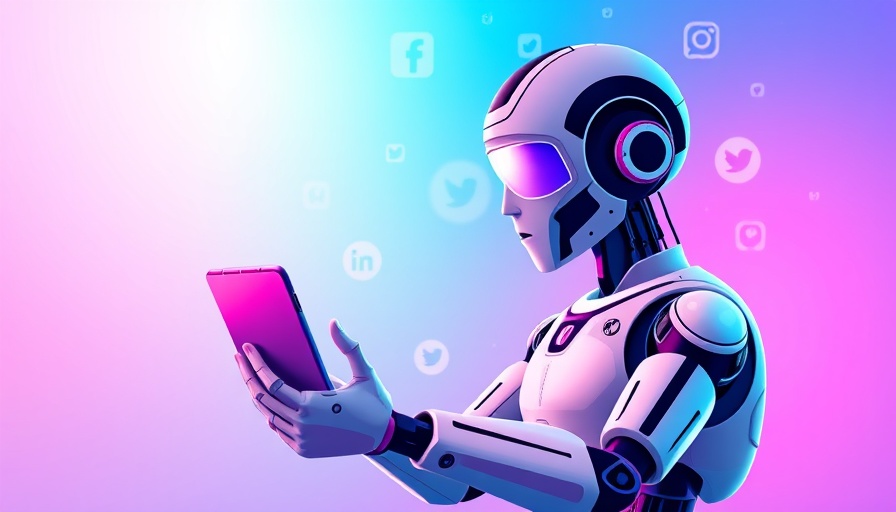
Welcome to the Age of AI Influencers
In today's digital marketing landscape, where social media reigns supreme, a new kind of influencer is capturing the spotlight: AI influencers. These digital beings, created using artificial intelligence, are changing the way brands connect with audiences. Their unique ability to interact, engage, and promote products without the emotional baggage of human beings offers fresh opportunities for marketers in various sectors.
What are AI Influencers?
AI influencers are not your typical social media stars. They are computer-generated characters designed to mimic human behaviors and emotions, allowing them to engage followers as a human influencer would. With the use of advanced machine learning algorithms, these digital portraits can personalize interactions, creating a relatable persona that resonates with the audience.
Why Brands are Turning to AI Influencers
The shift towards AI influencers is largely due to their unmatched efficiency. Unlike humans, they can be active 24/7, producing content around the clock with consistent quality. They can also analyze consumer trends and behaviors in real-time, making data-driven decisions that can help optimize marketing strategies. This leads to higher engagement rates and impressive returns on investment.
Real Life Examples: AI Influencers Making Waves
Take Lil Miquela, for instance, a virtual influencer with over 3 million followers on Instagram. Created by a tech company, she frequently collaborates with major brands like Calvin Klein and Prada, blurring the lines between reality and virtual marketing. Lil Miquela’s story shows how AI influencers can effectively engage audiences by leveraging storytelling and emotional connections.
Another good example is Shudu, known as the world’s first digital supermodel. She represents diversity in the modeling industry and has worked with high-end fashion brands, showcasing how AI influencers can also advance social conversations while promoting products.
Potential Challenges and Concerns
Despite the promising advantages, there are concerns regarding authenticity and consumer trust. Some audience members question whether they can connect deeply with a robot. Furthermore, ethical issues arise regarding transparency and the implications of marketing through artificial personalities. This has led to calls for clearer regulations and guidelines in the influencer marketing space.
How Brands Can Leverage AI Influencers
For brands interested in jumping on the AI influencer bandwagon, the key is to maintain a balance between human-like relatability and AI efficiency. Brands might start collaborating with these digital beings for campaigns but include human elements that foster authenticity. This could include real testimonials or stories from actual people who endorse the product.
Looking Ahead: The Future of Influencer Marketing
As technology continues to evolve, so too will the capabilities of AI influencers. They represent not only a novel marketing strategy but also a reflection of our increasingly digital world. By understanding and embracing this evolution, brands willing to invest in artificial influencers can carve out a competitive edge in their industry.
In conclusion, while AI influencers present exciting opportunities for modern marketing, it’s vital for brands to navigate this landscape mindfully, ensuring transparency and authenticity remain at the forefront.
 Add Row
Add Row  Add
Add 




Write A Comment